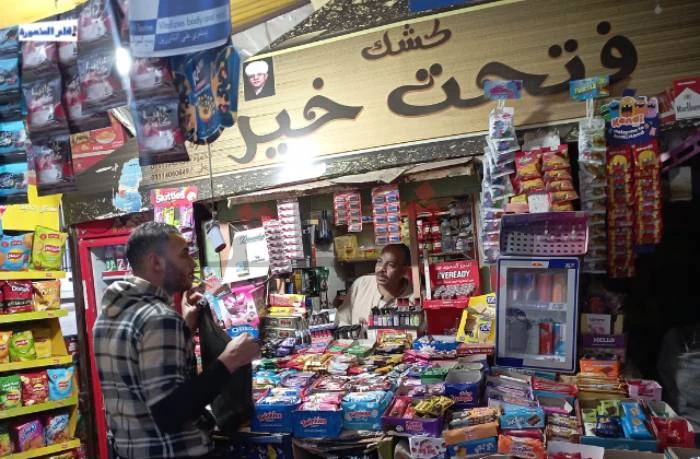Since the 7th of October, the movement to boycott brands and countries backing the Israeli occupation has swept across Egypt. People are urged to swap these products for locally-made alternatives. While some items were already available, others have begun to proliferate to meet the growing demand from those joining the boycott.
Citizens have used the right to boycott as a weapon in the face of the massacres taking place in Gaza and the remaining Palestinian occupied lands. Nonetheless, reality is more complicated; according to Al-Masry Al-Youm newspaper, last Novembre, the boycott effect didn’t exceed 10%, as local brands couldn’t cover the market needs.
In Mansoura, we sought to gauge the impact of the campaign on local shopkeepers. For instance, Ali Hamada, who runs a supermarket, mentioned that the boycott has dented his takings, as all the brands he stocks are on the boycott list.
“Distributors of Egyptian products compel us to purchase items that consumers don’t require, some of which are boycotted goods,” Ali added. Meanwhile, Hamada’s issue lies with the returns that haven’t yet expired, as his suppliers refuse to accept them back as long as their expiration date hasn’t passed.

Before the campaign, seldom were the people who asked Hamada for locally made goods, yet after it, people refused to buy goods listed in the boycott campaign, doubling the demand on local brands. This created a sort of crisis, as local goods are scarce as the companies are yet unable to produce quantities answering the market’s needs.
Hamada cited the example of a soft drink that gained popularity following the campaign, called “Spiro Spathis”, “I reached out to several company representatives to stock up on it, but I haven’t received any products yet.” He vows that if Egyptian products become plentiful, he will cease selling items that support the Israeli occupation.
Karam Mohamed, much like Hamada, runs a supermarket and is grappling with a shortage of local brands, making it difficult to meet customer demand. He mentioned that representatives informed him that companies are unable to supply the necessary quantities of local products like Tiger and Spiro Spathis, while the companies producing boycotted goods refuse to accept returns unless they have expired.
Mohamed added that many customers are asking for Spiro Spathis products, and although the company used to supply his market well before the boycott, the surge in demand since the campaign has led to a halt in deliveries. He’s unsure how to handle the pressure from customers insisting on Egyptian-made brands. Mohamed faces a similar issue with Tiger brand representatives, who used to send him larger quantities when demand was lower before the boycott.

Karam isn’t well-versed in the list of boycotted brands, but he’s noticed many of his customers using mobile apps to identify which products to purchase. Karam has decided not to restock any boycotted brands once his current inventory is depleted.
We met some wholesalers, who are the second link between companies and retailers.
Nasr Adel, a wholesaler, says that some grocery shops and supermarkets do not buy from him the brands supporting the Israeli occupation, for they’re in low demand now in favour of the Egyptian brands, “the Egyptian companies stock the wholesalers with small quantities of their products, and the only solution is to provide retailers with smaller quantities each, instead of stocking one merchant with large quantities,” Nasr added.
Adel clarifies that the continuity of the boycott will compel him to stop buying foreign brands, hoping the local brands would increase their quantities.
Salah Metwalli, a wholesaler, believes that the boycott didn’t affect his business or caused him any losses, clarifying that the Ministry of Supply and Internal Trade, according to him, compels companies to accept returns from merchants. “We will be able to replace the boycotted products with the increased demand for Egyptian products,” he added.
Metwalli expressed his extreme pride with the spread of the boycott culture, “I’m happy the younger generation demands the local brands the most,” yet he attributed this to the increase of the local brands’ prices.
What about the consumers?
Shaimaa Saad, a housewife, says that she is okay with buying local brands, even at a higher price, “there are no Egyptian brands less expensive than the foreign one, on the contrary they cost the same.” At the same time, Mahmoud Al-Ashry, Director of Al-Iman Complex, remarked that Spiro Spathis bottles used to cost 5 EGP before the boycott, and 15 EGP after it, unlike other competitive local brands that kept their prices the same; maybe for their low quality. However, Mahmoud will keep boycotting the products supporting the Israeli occupation.
On the contrary, Yusuf Mohamed, aged 16, disregarded all calls for a boycott and candidly stated, “I won’t join the boycott; Sina Cola tastes awful, and I’m still drinking Pepsi. As for Spiro Spathis, it’s pricier than its usual rate.”


